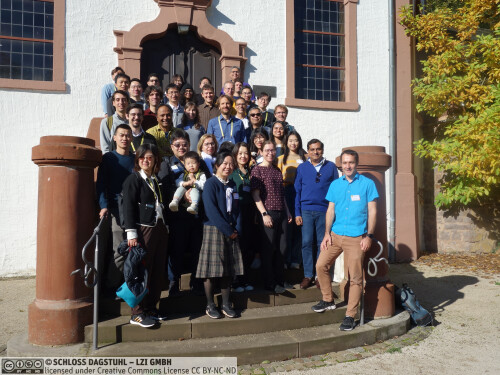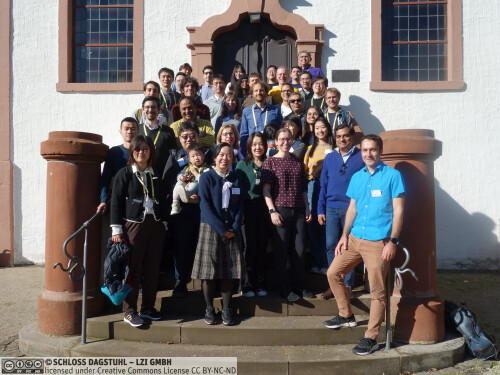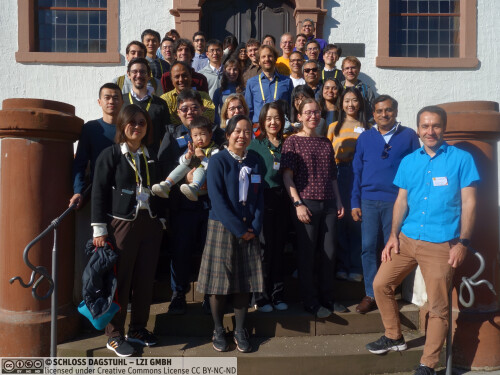Dagstuhl-Seminar 24431
Automated Programming and Program Repair
( 20. Oct – 25. Oct, 2024 )
Permalink
Organisatoren
- Claire Le Goues (Carnegie Mellon University - Pittsburgh, US)
- Michael Pradel (Universität Stuttgart, DE)
- Abhik Roychoudhury (National University of Singapore, SG)
- Shin Hwei Tan (Concordia University - Montreal, CA)
Kontakt
- Marsha Kleinbauer (für wissenschaftliche Fragen)
- Jutka Gasiorowski (für administrative Fragen)
Gemeinsame Dokumente
- Dagstuhl Materials Page (Use personal credentials as created in DOOR to log in)
Automated programming refers to techniques that suggest newly written code, e.g., in the form of code completion tools. Techniques for automated programming include large language models that predict code based on natural language specifications of the intended behavior. The recent development of technologies like Codex and ChatGPT have made us examine the possibility of automated programming in the future.
Automated program repair refers to a suite of techniques for automated rectification of errors or vulnerabilities in programs. Automated program repair technologies were originally developed for reducing the debugging effort for manually written code. However, interestingly these techniques can be adapted to improve automatically generated code.
This Dagstuhl Seminar will explore the intersection of these two fields. We plan to discuss recent work and potential future work in the following directions
- Apply program repair to fix code generated by code completion models. The code generated by large language models often has significant room for improvement in terms of correctness. We can also consider repair of automatically generated code in general.
- Apply the generate-and-validate paradigm from program repair to the code completion problem.
- Apply language model-based code generators to the program repair problem.
- Use the ability of large language models to infer the intended behavior of code from natural language information embedding in the code.
- In addition to predicting (fixed) code, generate evidence that the final code is trustworthy. Such evidence may take the form of tests generated along with the code, or other certificates obtained from formal reasoning.
This seminar will also help build greater connections and cross community understanding across formal verification researchers and researchers in program repair / automated programming. Formal verification or symbolic analysis techniques can be suitably adapted to give certificates of correctness, which may be useful in integrating large language model generated code into a software project. This can help in the coexistence of manually written code with auto-code from large language models. This possibility will be discussed and examined during the seminar.
 Claire Le Goues, Michael Pradel, Abhik Roychoudhury, and Shin Hwei Tan
Claire Le Goues, Michael Pradel, Abhik Roychoudhury, and Shin Hwei Tan
Please log in to DOOR to see more details.
- Earl T. Barr (University College London, GB) [dblp]
- Islem Bouzenia (Universität Stuttgart, DE) [dblp]
- Yuriy Brun (University of Massachusetts Amherst, US) [dblp]
- Cristian Cadar (Imperial College London, GB) [dblp]
- Celso G. Camilo-Junior (Federal University of Goiás, BR) [dblp]
- Satish Chandra (Google - Mountain View, US) [dblp]
- Chunyang Chen (TU München - Heilbronn, DE)
- Tse-Hsun Chen (Concordia University - Montreal, CA) [dblp]
- Zimin Chen (Deutsche Telekom - Bonn, DE)
- Andreea Costea (National University of Singapore, SG) [dblp]
- Premkumar T. Devanbu (University of California - Davis, US) [dblp]
- Alexander Frömmgen (Google - München, DE) [dblp]
- Ahmed E. Hassan (Queen's University - Kingston, CA) [dblp]
- Sungmin Kang (KAIST - Daejeon, KR)
- Dongsun Kim (Kyungpook National University, KR) [dblp]
- Claire Le Goues (Carnegie Mellon University - Pittsburgh, US) [dblp]
- Yiling Lou (Fudan University - Shanghai, CN) [dblp]
- Fernanda Madeiral (VU Amsterdam, NL) [dblp]
- Matías Martínez (UPC Barcelona Tech, ES) [dblp]
- Martin Monperrus (KTH Royal Institute of Technology - Stockholm, SE) [dblp]
- Nikhil Parasaram (University College London, GB)
- Michael Pradel (Universität Stuttgart, DE) [dblp]
- Nikitha Rao (Carnegie Mellon University - Pittsburgh, US) [dblp]
- Abhik Roychoudhury (National University of Singapore, SG) [dblp]
- André Silva (KTH Royal Institute of Technology - Stockholm, SE)
- Gustavo Soares (Microsoft Corporation - Redmond, US) [dblp]
- Gang (Gary) Tan (Pennsylvania State University - University Park, US) [dblp]
- Lin Tan (Purdue University - West Lafayette, US) [dblp]
- Shin Hwei Tan (Concordia University - Montreal, CA) [dblp]
- Yingfei Xiong (Peking University, CN) [dblp]
- Jinqiu Yang (Concordia University - Montreal, CA) [dblp]
- He Ye (Carnegie Mellon University - Pittsburgh, US)
- Jooyong Yi (Ulsan National Institute of Science and Technology, KR) [dblp]
- Jie Zhang (King's College London, GB) [dblp]
- Lingming Zhang (University of Illinois - Urbana-Champaign, US) [dblp]
Verwandte Seminare
- Dagstuhl-Seminar 17022: Automated Program Repair (2017-01-08 - 2017-01-13) (Details)
Klassifikation
- Software Engineering
Schlagworte
- Program repair
- Auto-coding
- Program Synthesis
- Trustworthy Software
- Large Language Models




 Creative Commons BY 4.0
Creative Commons BY 4.0
